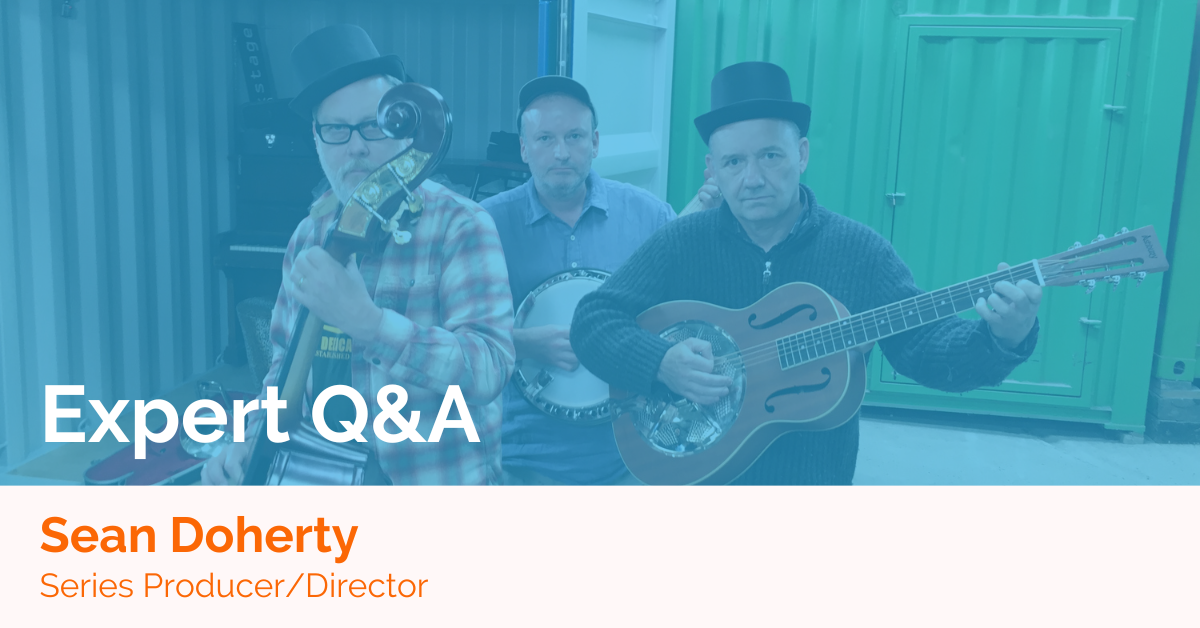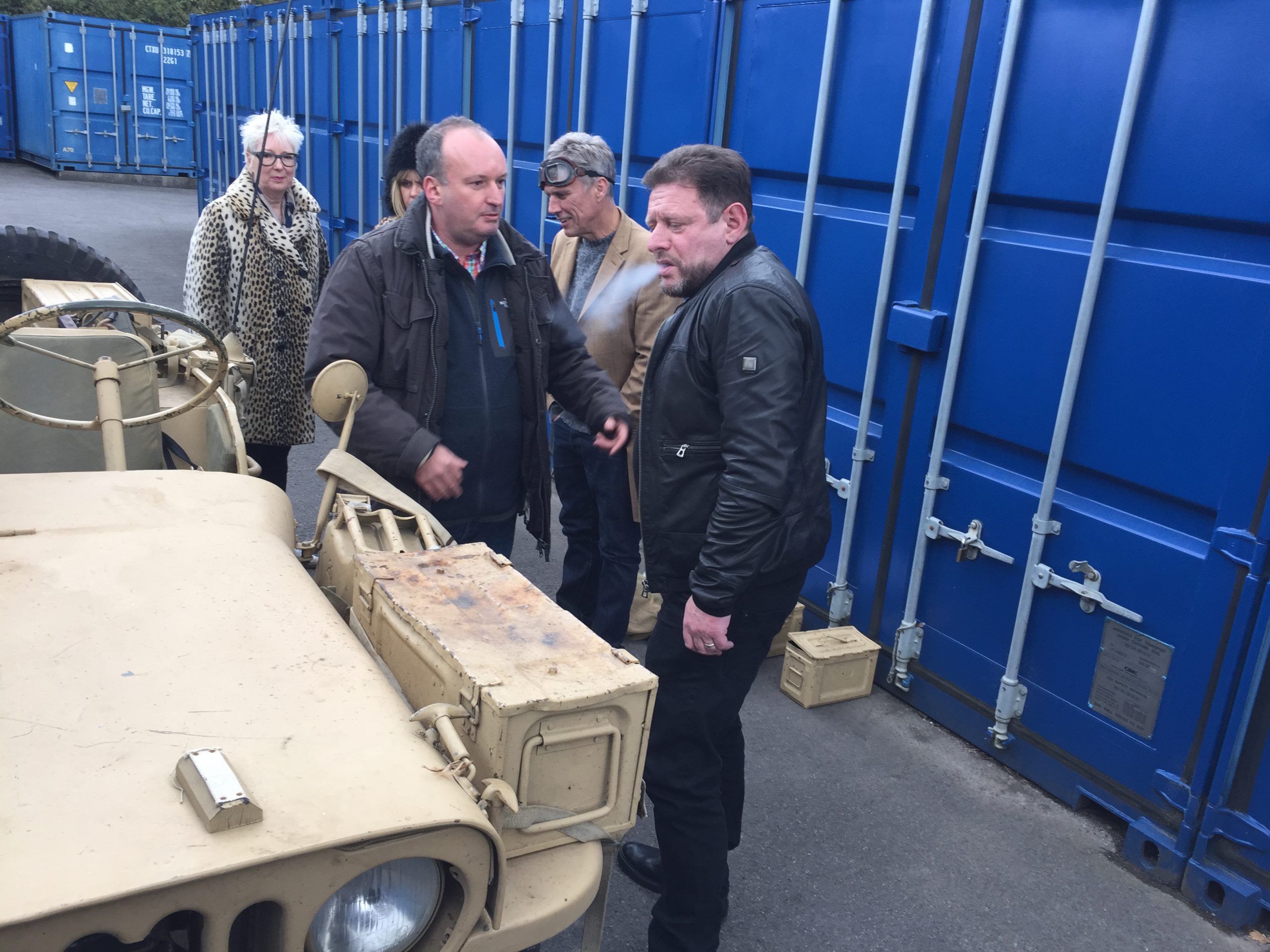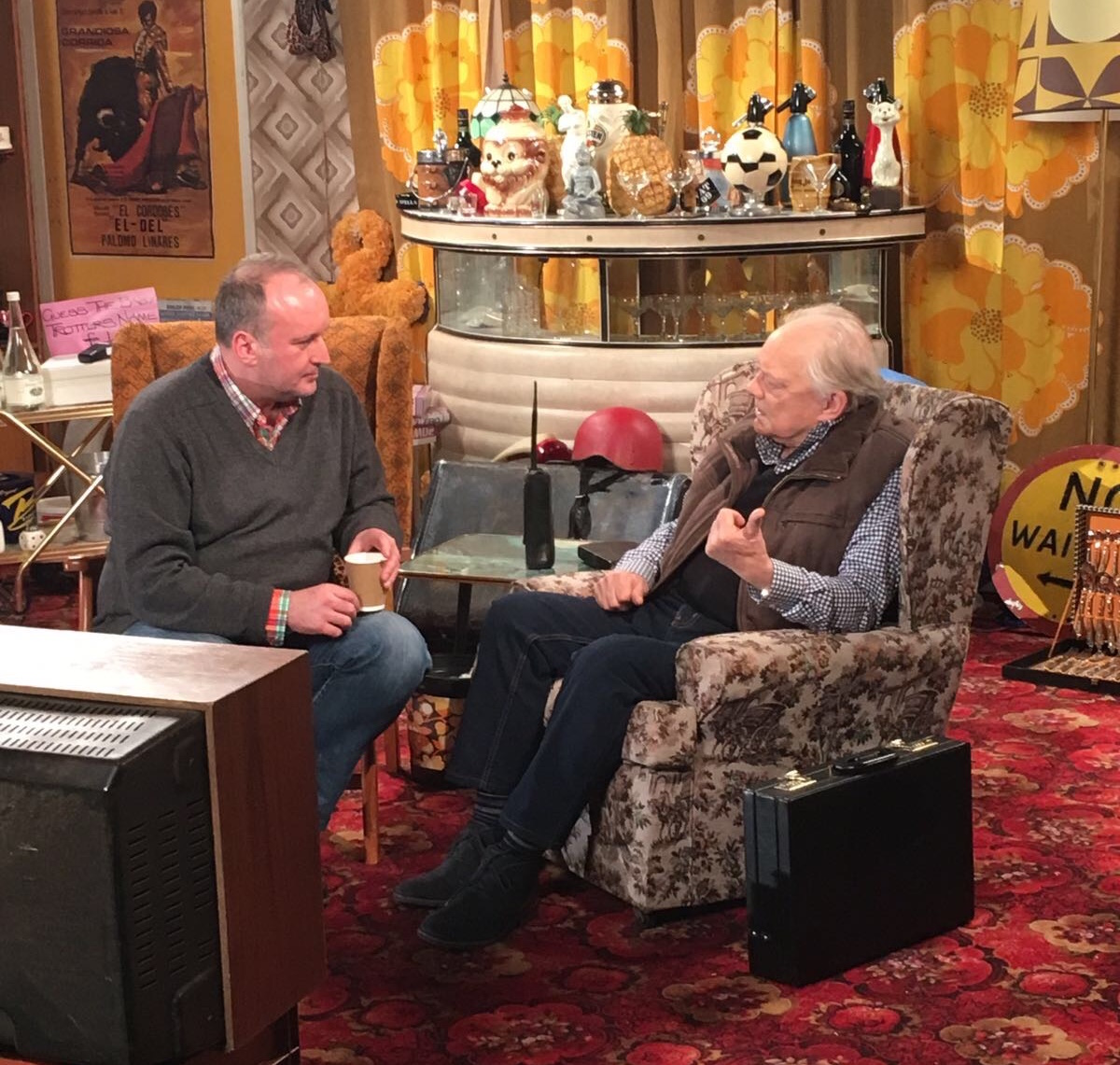
In our latest Expert Q&A we talk to Series Producer/Director, Sean Doherty, about his career in TV.
What was your first job in TV?
I first started as an Editorial Assistant at Sky Sports back in 1996. I had been working as a Radio Journalist in the North East/West for the BBC and ILR covering news and sport. I had also played national league/international ice hockey and Sky were covering the Superleague. I wrote to them and I couldn’t believe how lucky I was when they offered me a job.
My first day was an OB of a hockey game in Basingstoke. Fifteen cameras live on Sky Sports. They told me to just sit at the back of the scanner and watch. I was mesmerised and in awe at how so many different things were happening all at once and yet it all seemed to come together so smoothly.
Sky Sports was a wonderful training ground. They encouraged you to grow and take on new skills and it wasn’t long before I was directing single camera shoots and producing edits. Jerry Logan, one of Sky Sports pre-eminent Directors, was a wonderful mentor and by the end of my third and final season he had me directing the match coverage. Thankfully with a very experienced Vision Mixer!
What would you say has been the defining point in your career?
When I moved from Sky Sports to BBC Entertainment to make archive-based documentaries. Going from live sport to factual entertainment was a big change and allowed me to make a variety of programmes in different genres, and about the three subjects I’m most passionate about; comedy, music and sport.
You’ve had a long and varied career to date – what’s your favourite production so far and why?
I’d have to pick two. Storage Hunters UK was probably the most fun; travelling up and down the country, cracking open storage units with a large, and very talented crew and a hilarious cast of cut-throat bidders, hellbent on making a profit. We made 50 episodes of the reality show and six one-hour celebrity specials. The set designer and props team led by the brilliantly inventive, Joe McCann, outdid themselves spicing up some of the ‘treasure’ found in the units. From submarines and DeLorean cars to Jane Austen first editions.

My second favourite show was Ski A&E. It’s a hard life spending 10 weeks with a hugely professional team of talented people in the French Alps, but someone had to do it! Filming every aspect of the biggest ski resort in Europe from ski patrol rescues and the victims of ski accidents, to flying around the mountains in helicopters and setting off avalanches with dynamite to make the slopes safe. It was such a great experience, and being on skis everyday was such a privilege.
You’ve worked on a number of documentaries looking at much-loved comedy series. Is this an area you enjoy working on, and what’s the key to making the most of the original material?
I still love making shows about comedy. And I think the key to making quality archive documentaries as opposed to the clip and heads shows you see on some channels is to respect the archive. Watch everything you can. If you’re making a doc about someone, or some show, watch every episode. Watch and read everything they’ve ever done. If the writers/performers say they’re heavily influenced by say Buster Keaton, watch a load of Keaton. Totally immerse yourself in the subject.

When we made The Story of Only Fools and Horses which was 6 x 60 mins we ended up on the front pages of the tabloids twice. Once because we revealed that Lennard Pearce (Grandad) had performed for Hitler in 1936 and had said that he would have killed him had he known what a monster he would become. And the other because we had read that John Sullivan had written an episode which had never been broadcast. It was an information commercial film for a North Sea oil company which had only been shown in schools in the early 80s. We tracked a copy down which had been lying in a cannister on a shelf in a Scottish office for nearly 40 years. John had written about 20 mins of fresh dialogue with Del, Grandad and Rodney which top and tailed a fairly dull 10-minute doc about the importance of North Sea gas. The plot revolves around Del buying a ‘hooky’ oil rig from a mate. Grandad’s reaction was “what colour is it, Del?” Classic OFAH. The ‘missing episode’ featured in the series. along with an array of priceless archive, which included never before seen rehearsal tapes, outtakes and foreign re-makes. It was a joy to work on.
What’s the most challenging production you have worked on and why?
A Very British UFO Hoax was probably the biggest logistical nightmare. The premise was to build and fly a 12 metre wide flying saucer over the stone circle in Avebury, Wilshire. Technically a huge challenge but when you also add in MI5 levels of secrecy, obtaining permissions from the military and Civil Aviation Authority it was very nearly an insurmountable challenge, but fly it did and various sightings reported in the newspaper proved the hoax had succeeded?
Fair dealing 120 Hollywood movies clips in a 60 mins show for Charlie Brooker on Netflix for Attack of the Hollywood Cliches was also a bit of a head scratcher but great fun to make.
However, the most challenging was a BBC three series, where we took 12 young millionaires across the world and asked them to make money in six major international cities beginning in Istanbul and finishing in Hong Kong. Working in pairs, we challenged them to make as much money as they could in five days with no contacts and a tiny purse, all while living a backpacker lifestyle on a very tight budget. Whoever made the most by the end of the working week was allowed to return to the UK and their lavish millionaire lifestyle. The others continued on until there was only one left. So we called it The Last Millionaire. Twelve successful young business people with a crew of about 20, a pretty loose format and a city where they could go anywhere and do anything to make money meant it was at times pretty chaotic. Every day was a different challenge; from making the front page of the Turkish Daily News in week one (as two millionaires tried to sell their story to make money), to a stand-off between the police and our fixers (who we later found out were Cosa Nostra and carried firearms), to uncovering a rigged Thai boxing bout in Bangkok. It had everything that series.
Over the course of your career you’ve mainly worked on factual entertainment and ob doc projects. Are there any other genres you’d like to try your hand at?
Every show you make is different and offers up new challenges, subjects and contributors, so even within Fact Ent and Ob Doc there is a wealth of variety and richness. I’ve been lucky to be able to work in so many different areas, from live sport, studio, award shows, panel shows, blue light shows, even stand-up in front of a live audience. Finding a new way to tell the story, keeps you on your toes.. Even if it’s a clips and heads show on a well-trodden area there are always new angles, interesting facts and never seen before archive to uncover. That’s why you do the job.
What tips would you give someone who’s starting out and aiming to become a Producer/Director?
Watch as much as you can of other people’s work. Constantly question why some shows work better than others. Is it the format, the script, the talent, the score? What do you like/dislike about it? How would you change it? Question everything and have an opinion. And when starting off, target a specific genre you want to work in. Often execs want to see you have experience in a particular genre/area so get a few productions under your belt within the same sphere before trying different areas.
Once you have built up trust with a few different companies they will know what you’re capable of and the trust will grow. As a freelancer I’ve worked for dozens of companies, but I was very lucky early on in my career to work with Steve Gowans, Neil Duncanson and John Quinn at Chrysalis TV/North One. They gave me my first producers credit on the Top Ten series for C4 and they’ve always had faith in me to deliver. As well as making a whole host of archive shows for them, they’ve always been willing to bring me in to make series’ which require a lot of different skill sets including, A Very British UFO Hoax, Storage Hunters, Ski A&E and Jack Osbourne’s Haunted Homecoming.
What projects are you currently working on?
I’m series producing a number of the Comedy Classics on Five at the moment. 90-minute docs, fondly looking back at some of the greatest sit coms. And what I love about these shows is that there are always new angles and interesting facts to find if you look hard enough.
How do you think the industry changed since you first started out?
Budgets squeezed, time reduced and the expectations and responsibilities in some positions have certainly become more pressurised. The biggest difference probably being time in the edit before you have to show something to the channel. Very often when there has been no time to work through the rushes and bring the best out of what’s in the Avid. From that moment you’re playing catch-up. You’re reacting to notes without the chance to make it what you want and this ultimately results in a poorer show.
And of course, working remotely. In the last three years since we went into lockdown working in isolation has made some productions more challenging. Without daily face-to-face communication often work can be doubled up on. Like anyone I like being able to put on a casserole and washing on the line in-between zooms and viewings but it’s not the best way to run a production full time.
Sean Doherty is a Series Producer/Director, and a ProductionBase member. If you’d like to be featured in a future Q&A, let us know!